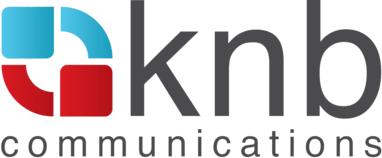There’s an old public relations proverb that goes something like this: No press is bad press.
While this statement is not universally true (just ask Harvey Weinstein), the reality is savvy companies capitalize on more media opportunities than they reject. While it’s important to ensure you are not setting yourself, your colleague, or your company up for failure (or embarrassment), and it’s not advisable to accept an interview you’re totally unqualified for, too often organizations decline reasonable or key message-adjacent media opportunities to their own detriment.
At KNB Communications, our media relations pros aim to answer “yes” to at least one of these qualifying questions prior to scheduling an interview with media:
- Does the outlet reach a client's target audience?
- Does the interview topic align with the client's key messages?
- Is the opportunity so great (a profile in the New York Times for example), that it trumps the answers to #1 and #2?
These questions help us gut-check if an opportunity is worthy of pursuit, but this is not an exhaustive criteria list.
On the flip side, sometimes clients expect to check all three boxes before agreeing to an interview, and that’s not advisable, much less practical. Remember, coverage doesn’t have to be perfect to be effective. Here are some reasons saying yes to an opportunity can work in your favor:
Coverage builds credibility. Just like you have to play t-ball before the Yankees call you up as their starting pitcher, you also need to prove you have media chops before appearing in the big leagues. Journalists often want to read or view past interviews before agreeing to speak with an expert.
New content is king. Adding a media placement to the “news” section of your website can increase your search engine optimization (SEO) and web traffic.
Participation fosters relationships. Humans (including reporters) are creatures of habit and often go back to their reliable sources for interview requests. Participating in an interview, especially on short notice, helps build your reputation as a go-to resource and reporters are more likely to reach out to you when they need a source in the future. They’ll also be more likely to accept a pitch from you in the future too.
Backlinks improve SEO. Many outlets will link to the company of the person being interviewed, which improves ranking on search engine results pages, authority score, and web traffic.
The greater good. You might be a healthcare tech company with a laser focus on promoting a new solution, but sometimes, that’s not what the story is about. For example, there are often opportunities to tout your company’s culture or other unique attributes, and doing so can help with recruiting top talent. Introducing your company to new outlets can improve your overall brand awareness.



.png)
.png?width=87&height=87&name=KNB%20marketing%20%20employee%20team%20bios%20%20meet%20your%20team%20(7).png)





